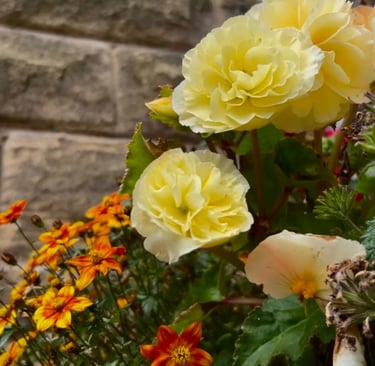Why my voice matters, voting, upholding our communities and sense of self.
A desire or intentions for peace mean little if we are situated in a persistent riot, so why does it matter how we feel and what we want for society and ourselves? Is the current political architecture competent enough to handle our desire for change? Do we have the tools we need in ourselves and in society to affect genuine change? I talk about exactly why we should care about our community and why our beliefs about voting matter.
SOCIAL IMPLICATIONS OF THE SELF
7/23/20244 min read


A concerning number of particularly young people have demonstrated persistent disengagement and even proposed disinterest in political affairs. Often the same demographic conveying significant concern and frustration with national and international matters. Leaving many to wonder why a demographic who have vocalised such concern regarding the conditions and trajectory of their country would not engage in an intended solution.
Following conversations with people around me who did and did not vote I have drawn together a few ideas as to why I believe people do and don’t vote. Importantly I am not declaring my ideas as true, but simply they are considerations I have reached with the information I have access to. In other words I’m by no means a professional analyst or researcher, nor am I implying my ideas should be implemented.


The understanding I personally gathered from speaking to people who refused to or felt unable to engage in voting was there was a common theme. A general sense of apathy, derived from a combination of internal lack of confidence, and external lack of confidence. Some shared that they did not feel they had understood enough to make a justified decision and it felt beyond them. Some shared they felt that their efforts were futile and were frustrated with the perceived incompetence of the current political architecture.
However, taking a closer look at why people do vote may behold valuable insights in encouraging individuals to engage in society and restore a sense of national honour and confidence. Individuals with a proclivity to vote appeared to also share some common themes. A strong sense of self, being a refined understanding of their personal values and morals. Confidence in their capacity to make independent decisions, and a secure sense of their likes, dislikes, fears and dreams that were not entirely situated upon social appraisal. Integration within a meaningful community, where they felt they could exercise their values and sense of self. A willingness to take on responsibilities that is fuelled by a genuine belief that their commitments matter and importantly count.


Our intentions of peace mean little if we are situated in a persistent riot.
Sometimes engaging in society when life feels chaotic can be exhausting and society is just about as relentless but equally rewarding as a toddler whom we love dearly. We can want to bring about positive change but sometimes we make the wrong decisions. Sometimes it is truly impossible to predict how our decisions and actions will be received. We may think we are delivering something valuable to someone, maybe booking a spa experience or weekend away for a loved one. But in reality they can’t get time off work and can’t afford the travel expenses and in the end we really delivered an unintended burden.
Above I identified a few common themes I personally saw in people who voted in the recent election. Being a strong sense of self, and integration within a meaningful community. Who they care about and the responsibilities taken on are done so in confidence that their efforts will result in the preservation of their community. Seeing that the apparent difference in mindsets between those who did and didn’t vote was confidence in political systems. As well as confidence in their own capacity for understanding matters and making good decisions. It has not been apparent in my questioning that there is a lack of desire for change in either groups.




Although objectively disengagement within the current standing political architecture negates a proposed desire for positive change. Sometimes paralysis manifests as a result of overwhelm, which can derive from caring and not knowing what to do with that feeling and desire for change. Particularly when people are tired and burnt out, engaging in something so foreign to our day to day lives being in the language used within political matters. That alienates many people from important conversations. It can be difficult to place our confidence in our decisions and consequently people do not vote.
So how do we enable individuals to develop a strong sense of self? How do we encourage integration within a community and meaningful social networking?
I believe that individuals with a strong sense of self, who are meaningfully integrated in a community all demonstrate having active targets. These can be personal active targets such as acquisition of skills, knowledge or completion of courses. Such as learning a language, or acquiring a new belt or grade in a sport. Continuous personal development appears to be predictive of a strong sense of self. Equally active targets should be relevant to a greater goal, such as contributing towards society and your community. Intrapersonal targets such as making more time for loved ones and listening to people. Developing practices and orienting aspects of your career or routine in a way that reflects efforts to preserve your community. I think active targets are essential to the embellishment and refinery of our sense of self, that importantly, fits into a community. Of which I presume should encourage democratic behaviours such as voting.
Love,
Amy.
